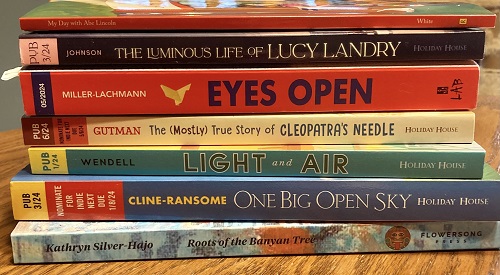The Narrow Road to the Deep North
“Why at the beginning… is there always light?” muses Dorrigo Evans, recalling, as a one-year-old in 1915, the sun flooding a church hall in Tasmania. Later, he wins a scholarship to study medicine in Melbourne and becomes an army surgeon. Although engaged, Dorrigo has a passionate affair with a pub owner’s wife. A fire destroys the pub, and grieving Dorrigo is unexpectedly shipped out for service during WWII. In 1943, he lands in the Changi Japanese POW camp. Along with 61,000 Allied and more local prisoners, Dorrigo is put to work on the construction of the Siam-Burma railway line, aptly named the Death Railway not only for the severe tropical conditions, but also the prisoners’ inhumane treatment—inadequate facilities, starvation, beatings—meted out by the Japanese. As the senior officer, Dorrigo aids his colleagues. Nevertheless, towards the end, over a quarter of the detainees become a part of the Death Railway ground. Receiving a strange letter, an emotionally damaged Dorrigo returns home. Although he marries and starts womanizing again, little does he know that his past would catch up to him.
 Richard Flanagan is aptly suited to write this novel, for it’s based on his father’s (and others’) experiences at Changi. This unsanitized account of its subject is more disturbing than that depicted in many earlier novels and movies. Nevertheless, it is penned in a splendid literary style, and its title complements that of the Japanese haiku poet Basho’s haibun. Although the intermingling of the past and present storylines requires careful reading, the mesmerizing narrative (sans quotation marks) flows to create evocative images of the characters and scenes. Flanagan has also included post-war lives of not only the Australians but also the Japanese to add depth to the novel; it provides new insights into their actions. Questions about love, guilt and death are tackled philosophically. It’s no wonder the novel has been shortlisted for the 2014 Man Booker Prize. Highly recommended.
Richard Flanagan is aptly suited to write this novel, for it’s based on his father’s (and others’) experiences at Changi. This unsanitized account of its subject is more disturbing than that depicted in many earlier novels and movies. Nevertheless, it is penned in a splendid literary style, and its title complements that of the Japanese haiku poet Basho’s haibun. Although the intermingling of the past and present storylines requires careful reading, the mesmerizing narrative (sans quotation marks) flows to create evocative images of the characters and scenes. Flanagan has also included post-war lives of not only the Australians but also the Japanese to add depth to the novel; it provides new insights into their actions. Questions about love, guilt and death are tackled philosophically. It’s no wonder the novel has been shortlisted for the 2014 Man Booker Prize. Highly recommended.










